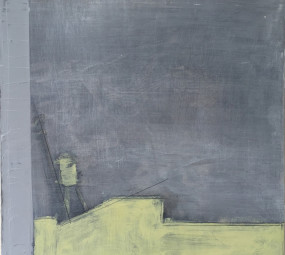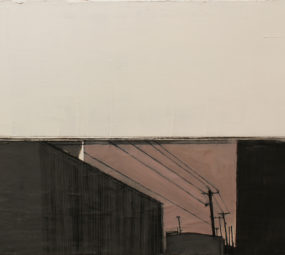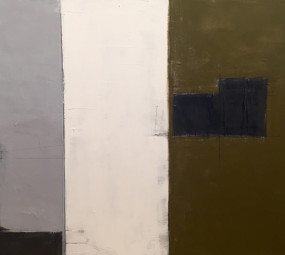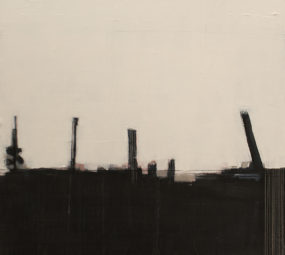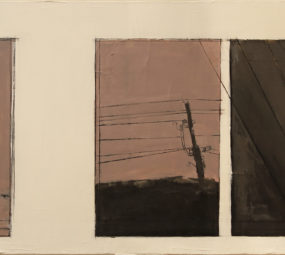Sarah Powers
Artist Bio
“My painting process is a cycle creating images, arranging elements and editing information. I start my work with a collage of photographs, drawings and bits of paper and then glue it all together onto the canvas, board or Plexiglas. Acrylic medium poured over the top makes a new smooth, transparent surface, which clouds the collage beneath. Over that I then draw and add pigment. Then, to get rid of extra information, I pour on another layer of medium and paint over that, leaving a little less each time. The acrylic also allows me to experiment with texture and its transparency allows some of what’s beneath to be seen.
When I’m finished with a piece, little of the original drawing and collage remains. The busiest parts are edited out to leave just the essence of the landscape. The piece is done when I start to see the image through a cloudy lens, like looking out a frosty window on a snowy day.
The places in the world that I like best, where I feel the most satisfied, are places that are the most minimal – the sparsest of places. I grew up where the land is flat and the landscape is industrial or agricultural. Because the trees are bare and the ground is white most of the year, the palate is limited to grey, brown, blue and white. Today, in the midst of my busy life in a very leafy city, I try to recreate this simplicity.”
Sarah Powers is an artist based in Raleigh, North Carolina whose mixed media work focuses on industrial and rural landscapes and landscape details. Her work has been featured in galleries across the U.S. including Rhode Island’s risd l works, The Sarah Doyle Gallery at Brown University and Glance Gallery, Vision Gallery and Artspace in North Carolina. Powers is a graduate of Rhode Island School of Design.
According to the Providence Phoenix Powers’ “use of minimalist simplicity, evident in both her technical and conceptual approach, is combined with arbitrary objects of our everyday world to create an elusive yet captivating scenario that seems impossible to forget.”

